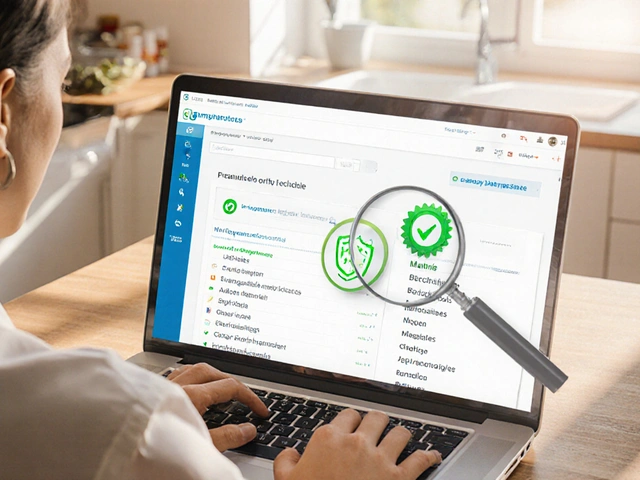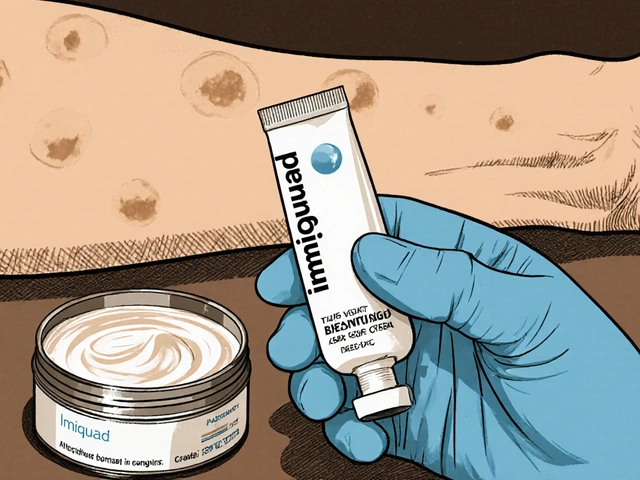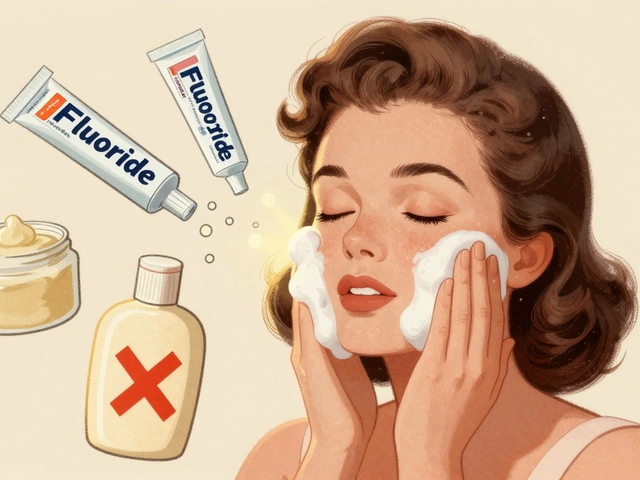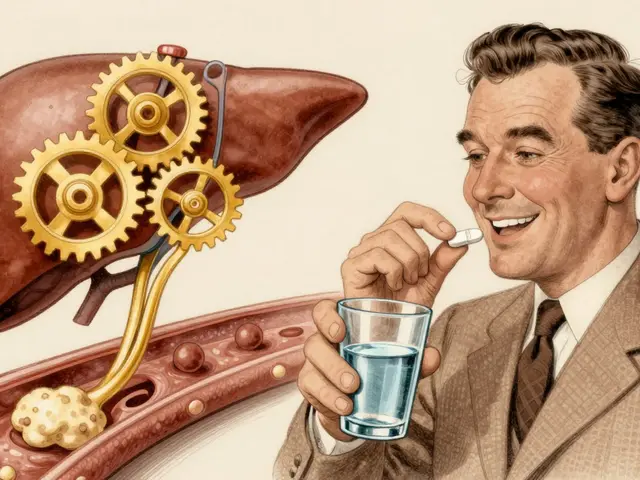Picture this: hundreds of British water supplies naturally contain lithium—yep, the same mineral found in prescriptions for bipolar disorder. But here’s what’s wild—these aren’t high doses. Just trace amounts, quietly flowing in your tap water, and possibly impacting your mood more than you realize. No one’s talking about it at the corner shop, but lithium as a lithium supplement might be the most underrated player in the world of well-being.
What Exactly Is Lithium and Why Should You Care?
Let’s clear up any confusion. When most people hear “lithium,” they picture those tiny white pills for serious mental illness. But in low, nutritional amounts—think of it as micro-lithium—this mineral is a natural trace element, found all over the planet. It sits right next to sodium on the periodic table, but unlike table salt, it barely gets a mention in diet plans or wellness podcasts.
Your body doesn’t make lithium, and yet it seems essential for a healthy, balanced mind. Across the globe, researchers have noticed that communities with slightly higher natural lithium in their water often report lower rates of depression, suicide, and violent behavior. It’s no urban legend; a Japanese study in 2009 documented precisely this effect in over a million people. So while it’s not a miracle fix, lithium quietly supports brain health in subtle, long-term ways. I’ll admit, as someone who’s always had a soft spot for science and a low tolerance for “miracle cures,” I was skeptical—until I actually started reading into real data.
Biologically, lithium acts like a mood stabilizer even in trace amounts, helping your brain store and use key chemicals like serotonin and dopamine. That means it can slightly improve how you react to stress, regulate mood swings, and even offer a touch of resilience in the face of life’s stickiest moments. Funnily enough, nobody’s actually set an official recommended daily intake in the UK or US. Some researchers suggest a ballpark figure—about 1 milligram per day—based on what’s found in typical diets. Compared to prescription doses (100–200 times higher), it’s tiny, just enough to perhaps keep things ticking over smoothly in your head.
How Can You Get Lithium Naturally? Food and Water Sources
If you’re expecting an aisle in your local supermarket labelled “Lithium-Rich Foods,” you’ll be searching a while. The truth is, lithium isn’t like vitamin D or calcium—it hides in plain sight. In Manchester, for instance, tap water tends to have traces of lithium, but levels can swing dramatically between neighborhoods. Across the UK, levels range from barely measurable up to a couple of milligrams per litre. It’s luck of the draw unless you’re constantly testing your tap.
Beyond water, some foods naturally bring lithium to the table, especially if they’re grown in mineral-rich soil. Here are a few worth noting:
- Whole grains– brown rice, oats, and wheat bread (especially if grown in regions with high lithium in the soil)
- Legumes– lentils and beans are decent sources, though content varies wildly
- Potatoes and tomatoes– all-stars for mineral absorption
- Leafy greens– think spinach and kale, but only if the local soil’s got the goods
- Eggs and dairy– small contributors, usually providing less than plants
Still, the total you’ll get from a day’s eating rarely exceeds 1 milligram. Those on strict processed diets or using only bottled water (which is usually filtered) might get far less. That’s why supplementing—using lithium orotate or lithium aspartate at micro-doses—has picked up steam with people looking to deliberately nudge their intake. Just don’t confuse it with prescription lithium carbonate; the dose and effects are worlds apart.
Even my cat Fennel, for what it’s worth, gets a taste of lithium via Manchester’s water. And if Fennel’s nine lives are anything to go by, it can’t be all bad. But for us humans, consistency matters more than quantity—think a reliable, small daily dose, not wild swings or mega-dosing. That’s where supplements can bridge the gap, especially if mental clarity, resilience, or emotional balance is something you’ve found yourself chasing lately.

The Research on Lithium Supplementation: What’s the Evidence?
Let’s dig into what real studies say. Hard science, not just wellness blog opinions. A landmark 1990s study in Texas compared suicide rates across counties with different natural lithium levels in public water. Strikingly, places with more lithium saw about half as many suicides as those with the least. Since then, similar studies in Austria and Greece have echoed these findings, tying lithium to improved community well-being.
Now, don’t run off thinking swallowing lithium means you’ll be cheerful as Fennel with a fresh tin of tuna. It isn’t an instant mood enhancer, more of a steady hand on the tiller, nudging our emotional weather from stormy to, well, slightly less dramatic. One of the best-reviewed experiments gave healthy volunteers a micro-dose supplement and watched for mood changes. Some reported less anxiety, sharper focus, even better sleep quality after a month.
Brain imaging studies highlight how lithium regulates neural connections and protects brain cells from stress—especially the hippocampus, which is crucial for memory and managing mood. In elderly people, small amounts may slow down age-related cognitive decline. Dietitians have pointed out that places with higher natural lithium levels in food and water tend to see healthier cognitive aging, though big clinical trials are still in the works.
What about side effects? Unlike prescription-strength lithium (which demands blood checks and doctor visits), micro-dose supplements are generally considered safe for most adults. Minor grumbles like thirst or nausea are rare if the dose stays low. But, and this is huge, anyone with thyroid or kidney problems should speak to a doctor before supplementing. Interactions with certain blood pressure meds can also crop up, so don’t play chemist in your kitchen without good info.
Some psychiatrists now quietly recommend low-dose supplements for clients needing extra help managing mild but persistent mood swings or stress. But don’t expect NHS leaflets on it—this is still on the fringe for standard health care, though attitudes are shifting as evidence builds. The word is getting out, quietly but steadily.
How to Use Lithium Supplements Safely and Effectively
If you’re curious but cautious, that’s the right approach. First tip: stay away from prescription lithium unless your GP prescribes it for a specific condition. Micro-dose lithium orotate or aspartate are the forms usually found in over-the-counter supplements. Typical tablet strength is 1–5 milligrams of elemental lithium per pill—remember, much lower than the medical dose, which is measured in the hundreds of milligrams.
Start small. Unlike caffeine or vitamins, you won’t “feel” the effect instantly. Give it two to four weeks, checking in with your own mood, sleep, and mental energy. If nothing annoys my cat Fennel more than changes to his routine, but with supplements, routine is exactly what matters. Stick to a consistent time daily rather than randomly popping pills. Pairing it with breakfast is easy and forgets about after a while—it just becomes part of the flow.
Here’s what works best based on research and firsthand experience:
- Check your water: Some British local councils still make reports available on tap water mineral content. You might discover you’re already getting enough lithium naturally.
- Choose low-dose reputable brands: Look for products listing “elemental lithium” content, not just the compound’s weight.
- Cycle occasionally: Some take micro-lithium for a few months, then pause to see if mood stability is sustained.
- Watch for rare side effects: Unusual thirst, muscle spasms, or digestive trouble at low doses are red flags to stop and consult a health professional.
- Don’t mix with prescription mood stabilizers: Especially not without your psychiatrist’s direct advice—this isn’t DIY psychiatry.
- Boost naturally with food: If supplements feel risky, eat more beans, whole grains, and tap water—small moves, but every bit counts.
- Keep your doctor in the loop: Especially if you have medical conditions, check any new supplement plan first.
There’s a practicality to all this. Is lithium the only thing you need for well-being? Of course not. Diet, friends, Fennel’s purring on your lap—these matter too. But if you’re someone who’s tried all the usual suspects (magnesium, omega-3s, meditation apps) and still feels your mind’s got rocky patches, lithium might be a missing piece. And unlike most supplements that get hyped until the next big thing, lithium’s story is grounded in decades of hard data and real-life observation.
Sometimes, thinking small—a tiny mineral, a micro-dose, a gentle nudge to the system—is how you actually get big results. Next time you turn on the tap in Manchester, give a brief nod to what’s quietly floating in the water. Wellness isn’t always about the loudest trends. Often, it’s about what’s working behind the scenes, steady as a cat’s heartbeat on a sunny windowsill.








Write a comment
Your email address will be restricted to us